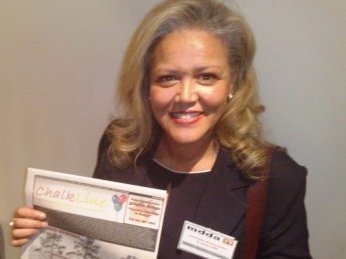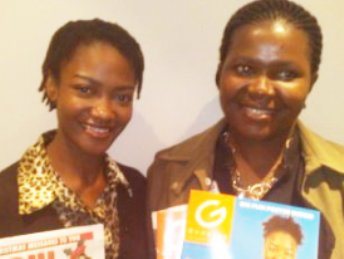South Africa's mediascape faces the challenge of getting more voices
Some of these enterprises owe their existence to the Media Development and Diversity Agency, which has spent R73m on 229 projects in the past five years.
Legislated into existence in 2002, the agency built up its staff and systems, and began dispensing grants two years later. Since then, the organisation (of which I am a board member) has been steadily gaining momentum - even though it is still early days in terms of making large-scale impact.
The agency is a partnership between big media and government to broaden media diversity in South Africa by availing funds and training to start-ups and grassroots media. About half the cash comes from the state; the remainder from the print and broadcast companies.
At a recent MDDA meeting to mark the impending renewal of contracts with private sector donors, the agency showcased some of the publications that had benefited from its operations.
One is Chalkline, a Western Cape monthly paper that targets the niche market of teachers, and owned by Willida Peach.

“The bane of any enterpreneur's existence is cashflow,” she says. “In the world of publishing, this is exacerbated by printing and distribution costs.”
The MDDA had ensured the publication's survival and given it a leg up towards sustainability.
Two other publications backed by MDDA are Ziwaphi and G magazine.

Mpumi Mtshali (left) is manager-editor of Ziwaphi (meaning "what's up”), a three-year-old publication carrying developmental news in the Nelspruit area. Now approaching its 50th edition, it was given support to develop and implement its business plan by MDDA.
Genuine magazine is the brainchild of Mbali Dhlomo (picture above, right). who originally self-financed the first ten editions before going bust.
“When I heard about the MDDA, I took a bus to Johannesburg, and went right there. I was the first to apply,” she says.
Capital wasn't immediately forthcoming, however. Instead, the MDDA insisted on first providing business mentorship.
In 2006, Dhlomo was ready to relaunch, and with a cash injection from MDDA, she now prints 3000 copies an edition of her lifestyle magazine.
From having started initially as self-taught in planning, design, distribution and marketing, Dhlomo says she now sells these skills to others.
But she cautions that sustainability is not likely to be achieved in three years - “I would wish for us to be re-funded.”
Another person who started a publication, ran out of cash, but was then able to pick up the pieces with MDDA support, is Isaac Dlamini.
His company owns Ishishini Lam, a paper targeting hawkers and spaza shops. Some 50 000 copies of the free 16 pager are printed every month.
At present, the advertising revenue covers only half the operating costs, and Dlamini identifies his difficulty as not having a dedicated sales person to ads.
Sosh Times is another beneficiary. “All we need is advertising from the government,” says the paper's Thabo Mooke, going on to argue that there is a business, rather than a charity, case for this service.
He puts his finger on the acid-test challenge for the MDDA's work: “There is no point in funding us if we cannot sustain ourselves.”
Viability is not easy to achieve in the micro-economics of small-scale publishers. Even in the mainstream things are tough, especially nowadays.
Last month, the world newspaper industry body, representing more than 18 000 titles, cancelled its planned annual conference in March. The event has grown exponentially since its inception six decades ago, but this year it faced a stay away by members who were tied up with their crises at home.
All this means that MDDA has an uphill struggle to produce enduring results. The alternative, however, is for South Africa to miss out on deepening its media density and diversity.
As important, however, also at stake in this is the strategy of transforming media ownership by expansion of the sector, as distinct from interventions to dispossess the existing proprietors.
Unlike businesses like banks which agreed under pressure to adopt industry charters to redistribute share-holdings, the country's media companies are offering the success of the MDDA as a way to grow new owners alongside them.
Unbundling the mainstream would produce more owners (at least amongst the usual BEE players) - but it would not necessarily expand the industry in the way MDDA seeks to do.
In this sense, the agency is an experiment that has a broader significance than just the projects it supports.
If Peach, Mtshali, Dhlomo and the others succeed, their achievements will resonate much more widely.
About the author
- Deadline looms for MDDA-Sanlam Local Media Awards entries for 2014 23 Jan 2015
- MDDA-Sanlam Local Media Awards entries for 2014 now open 26 Nov 2014
- Entries open for MDDA-Sanlam Local Media Awards 25 Nov 2014
- Mandla Langa acknowledges 20 years of media freedom and diversity 28 May 2014
- MDDA-Sanlam Local Media Awards winners announced 27 May 2014
Media Development and Diversity AgencyThe Media Development and Diversity Agency (MDDA) is a statutory development agency for promoting and ensuring media development and diversity. |